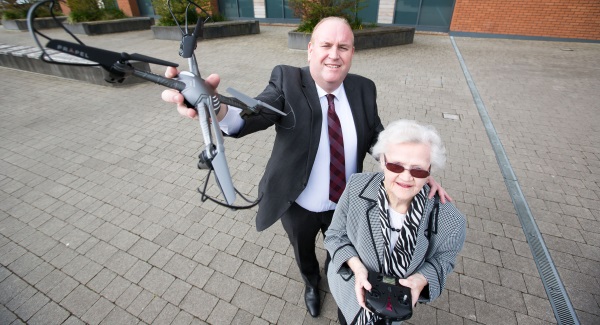A mother on the phone trying to explain the work of her professor son was the spark for an invention that could be used on future space missions, writes Joe Leogue .
Little did 82-year-old Limerick woman Delia Hinchey know that her misunderstanding would lead to her being credited as a co-author on a US patent for space-age drones.
Her son, Prof Mike Hinchey is a director of Lero, the Irish Software Research Centre. He came up with an idea for a drone-based repair system after hearing his mother in conversation.

“I overhead my Mum on the phone describing a project I was working on. She said I was researching a system whereby a drone could chase after another one and fix it.
“I was working on no such thing but then I thought to myself, ‘hey, that’s not such a bad idea’,” he said.
Prof Hinchey, who also acts as consultant to Nasa, applied the concept to space exploration vehicles that travel in swarms. Elements of those that fail can be used to support the rest of the fleet. “The system is not unlike the behaviour of bees who sacrifice themselves for the sake of the colony,” he said.
Now Mrs Hinchey is listed in the US as a co-author of the patent alongside Prof Hinchey, fellow Lero researcher Emil Vassev, and artificial intelligence expert Roy Sterrit.
“Swarm-based missions may be the wave of the future, whereby space exploration is undertaken not by one large spacecraft but by swarming formations of much smaller, cheaper ones,” said Prof Hinchey.
“Future space probes that operate in co-operative swarms must self-sacrifice if they begin to fail and risk damaging their neighbours.”
Mrs Hinchey said she was happy to have contributed.
“It’s all a bit beyond me but I’m delighted I sparked something which might be of value to space exploration in the future,” she said.
The patent charts how a component can donate a resource or asset to another part of the system, even if the donating component is working perfectly but where the donation enables a more important task or mission to be attained.
This article first appeared in the Irish Examiner.


